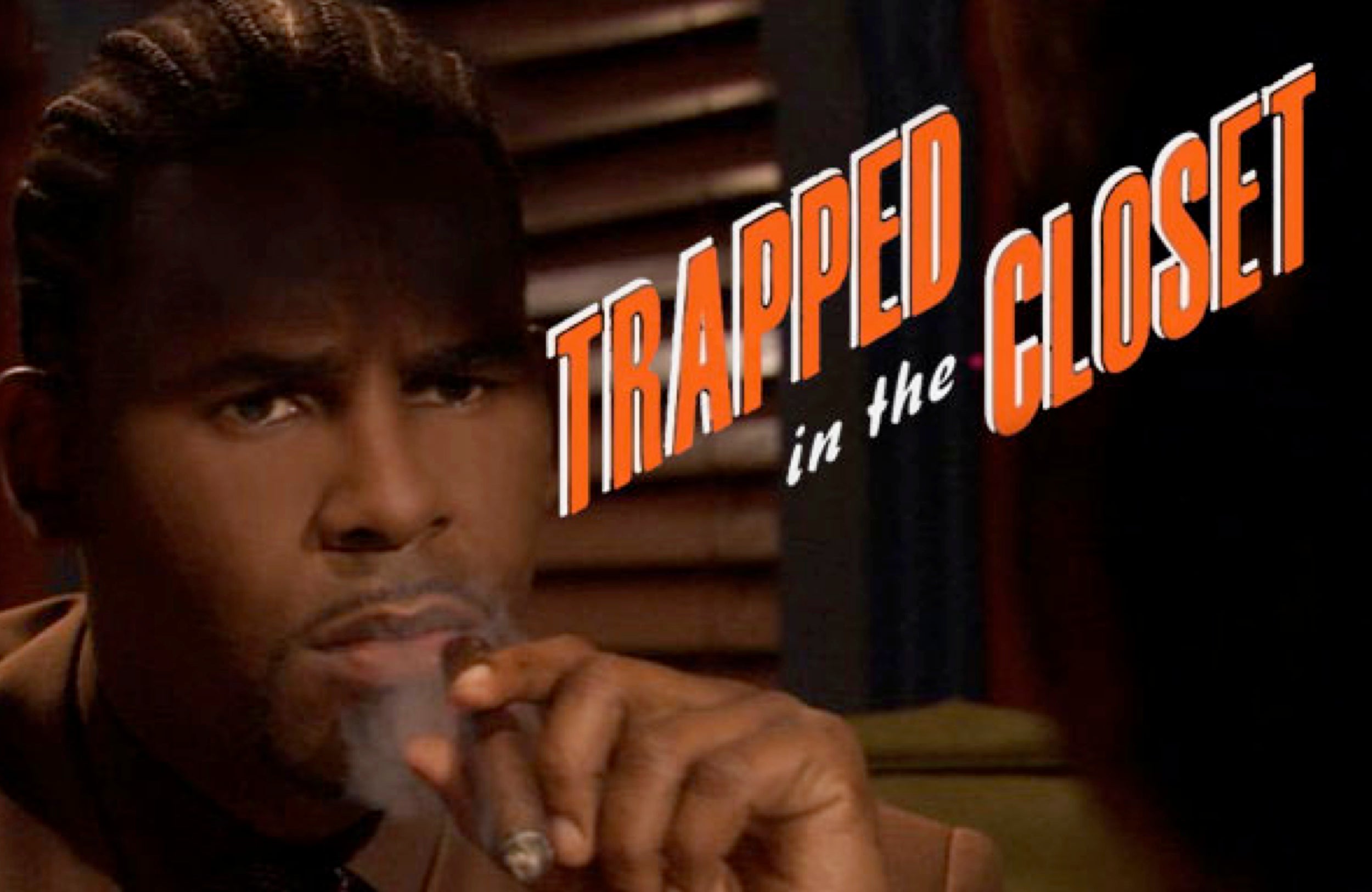

It would actually not be surprising at all if it was never brought up in the next 52 chapters, which is part of Trapped’s ridiculous charm. Or is He? He was not heard from again after that little incident. It’s true: God is now a character in this thing. We learned a lot about Lucius (one of the characters played by Kelly), like that ever since he pretended to change his ways in church in chapter 19, God sometimes talks to him.


Instead, there was a lot of screen time given to characters like Pimp Lucius. Also not appearing in the new stories? Chuck. Kelly introduced the world to Big Man, the midget that popped out of a kitchen cupboard back in Chapter 9? You could tell Kelly was excited by the twist he had written because he prepared the audience of Big Man’s arrival by giving him easily the most drawn out introduction: “Now/pause the movie/’cause what I’m about to say to y’all is so damn twisted/not only is there a man in his cabinet/but the man is a midget!/Midget!/Midget!/Midget!” But Bridget’s secret lover and father of her child only received five seconds of screen time in Chapter 23, as he was taking a phone call from a mysterious person that had called all of the characters so far in the story, except for the very important Chuck, who was off the grid. In regards to trying to service too many characters: Remember when we were just kids and R. Combine that with the shock value of watching people lip sync to an R&B star singing about midgets and stuttering pimps dissipating, most of the new chapters’ humor had to and indeed came from more traditional comedic beats, for better or worse. In terms of it’s humor, it didn’t really make a difference whether it was intentional or not at first, but in the five years since the last bunch of episodes were released, Kelly must had been told over a million times by fans about how funny the whole thing was. The book was purposeful in both its being written to be all about the journey and not the destination (the protagonist is not even *born* until the third volume) and in its odd comedy, but whether or not Robert Sylvester Kelly - who acts, writes, co-directs and executive produces Trapped - purposely intended for his magnum opus to gradually obstruct and dance around an endpoint and to be funny remains a question that could never really be answered. Kelly had Sylvester sing-narrate his and Twan’s every move from the entrance to the office, in a hypnotic and meticulous fashion: “They make a left/and then they make a right/and go down the stairs…./and keep straight…./then they make another left…/and another left…/then up the stairs…/third floor…./elevator……………./and through some doors.” The second biggest acknowledgement is the whole never getting to the point thing. In one of Sterne’s volumes there is a very long passage where one of the characters begins to walk down the basement stairs, only to stop and tell very long stories, repeatedly, at one point even pointing out that him and the character he was speaking to and boring to death that they hadn’t made much progress down the stairs for quite sometime. Kelly’s most glaring acknowledgement occurred when Sylvester and Twan entered Beano’s headquarters in Chapter 32.
Trapped in the closet 23 33 series#
Tristam Shandy is of course a strangely humorous nine volume series - released over an eight year span - in which a man unsuccessfully attempts to write his autobiography. I don’t believe in that, but I must say that after chapters 23 through 33 out of the planned 85 chapter series aired over the holiday weekend, it’s obvious that Trapped’s biggest influence is Laurence Sterne’s 18th century novel The Life and Opinions of Tristam Shandy, Gentleman. Kelly’s musical dramedy Trapped in the Closet, they tend to throw out a high-brow literary reference to demonstrate that they are intelligent human beings that just so happen to be exploring a subtlety free, it’s-so-dumb-it’s-brilliant work of art.


 0 kommentar(er)
0 kommentar(er)
